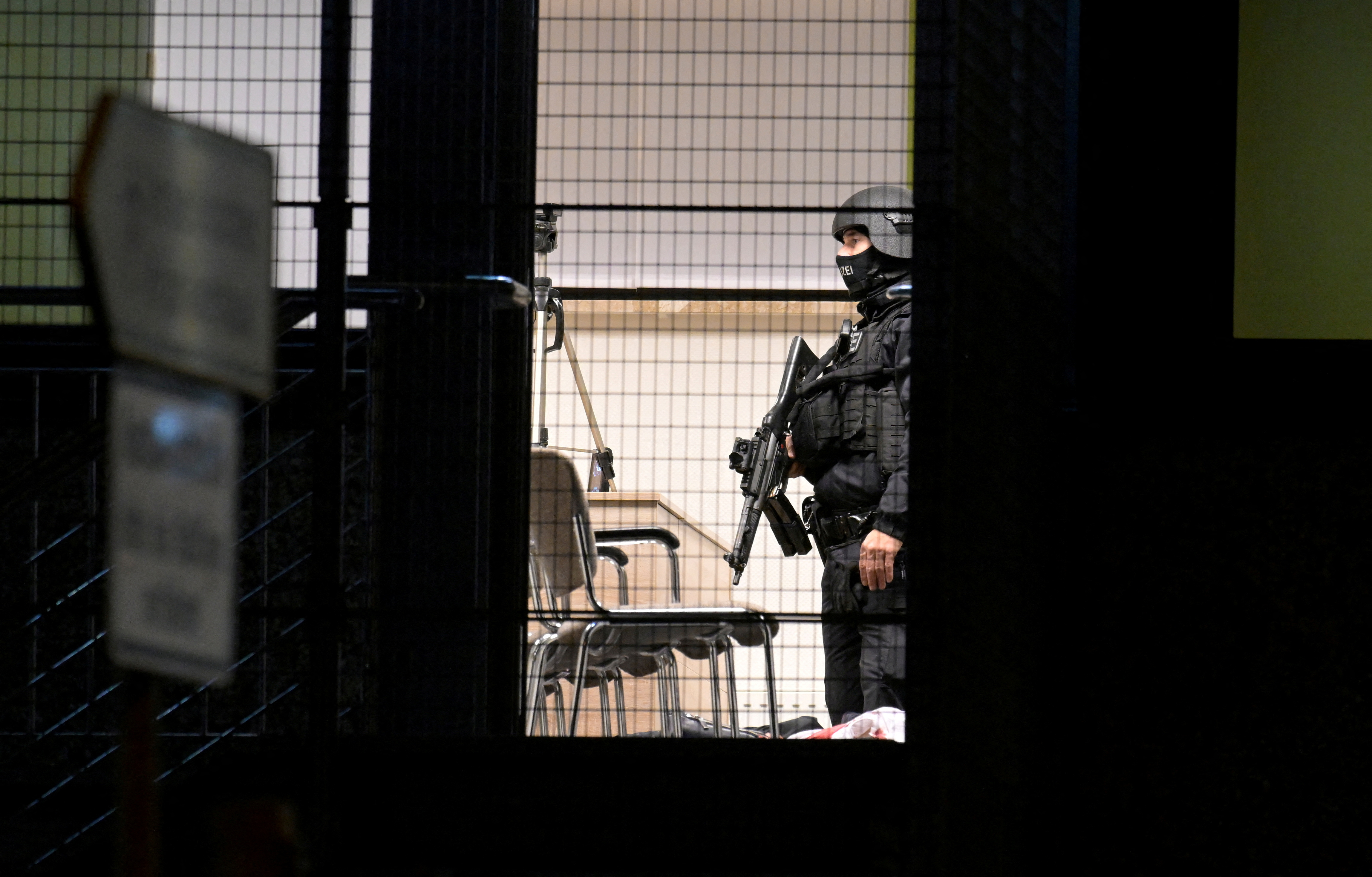A deadly rampage at a Jehovah’s Witnesses hall in Hamburg has put scrutiny on how the gunman was in legal possession of a semi-automatic pistol despite Germany’s tightened gun laws and a prior warning about his suspicious behaviour.
The 35-year-old man, whose name was given as Philipp F. in accordance with German privacy laws, killed six people and then himself when he opened fire on Thursday evening.
The exact motives were still unknown, but officials said the gunman had previously expressed his hatred for Jehovah’s Witnesses. He had once been a member of their community and had grown up in a religious family in southern Germany.
According to a briefing given by police and prosecutors in Hamburg on Friday, Philipp F. was the licenced owner of a Heckler & Koch P30 semi-automatic handgun.
He was an amateur marksman, part of Germany’s strong hunting and gun sports tradition. According to government data, there are over 940,000 registered private gun owners in Germany, which has a population of 84 million people. The DSB marksmen’s association has around 1.35 million members in 14,200 clubs.
Philipp F. had no criminal record or any links to terrorism prior to the attack that would have automatically prevented him from owning a gun.
However, the authorities had received an anonymous tip-off with allegations of disturbing behaviour in January.
“The anonymous person expressed the opinion in the letter that Philipp F. could be suffering from a mental illness, without, as the person wrote, this being medically diagnosed since Philipp F. would not seek medical treatment,” Ralf Meyer, the head of the Hamburg police, told the briefing.
“Philipp F. supposedly harbours a particular anger towards religious followers especially towards Jehovah’s Witnesses and his former employer.”
The tip-off prompted two police officers to carry out an unannounced check at his home on Feb. 7.
When they met Philipp F., he was cooperative and gave no indication of mental health problems. The officers even ended up chatting about how the flat was furnished.
His licence was inspected and police also had to check whether his weapon and ammunition were properly stored, which they were, except for one projectile that was incorrectly lying on top of the gun safe.
Philipp F. was given a verbal warning about the stray projectile. He was apologetic and the projectile was placed into the safe, after which the police felt they could not take any more action.
“The entire situation also showed no indications for the officers that could have pointed to a mental illness,” said Meyer. “On the contrary, they had a further conversation with him about a variety of things, such as the furnishing of the flat and similar things, and at the end they went out and gave him a verbal warning for the minor offence.”
TIGHTENING LAWS
The interior ministry has said the country’s gun controls are already very strict. However, the government has come under pressure to tighten rules, following a string of attacks in recent years and most recently after authorities uncovered an extremist network plotting an armed coup late last year.
A law on tighter gun control that Berlin is preparing stipulates would-be owners undergo a psychological suitability test, Interior Minister Nancy Faeser said on Friday on a visit to the scene of the shooting.
In Germany, people aged 18 or over with no criminal history can obtain a permit to own a gun if they fulfil certain legal requirements. These regulate the weapon’s safe storage and also require that the individual is psychologically fit.
The authorities can conduct spot checks on gun owners to ensure they are adhering to the requirements.
Germany last changed its weapons law in 2020, when it outlawed certain large magazines. Also part of the changes was the introduction of a check by authorities every five years to see whether there is justification for possession of a weapon.
As part of the background check, the weapons authority must inquire with Germany’s domestic intelligence agency whether the person concerned is known there as an extremist.
Officials at the briefing said they were now reviewing whether such processes should be tightened.
“Even if the arms control colleagues pursued this tip-off professionally, and were personally convinced by the situation and assessment that they conducted, we must once again take a critical look at these procedures, above all the legal procedures and requirements for further measures,” Meyer said.







Click here to change your cookie preferences